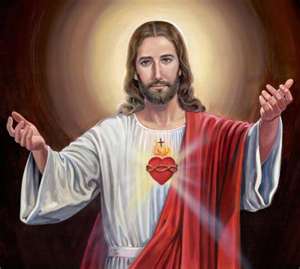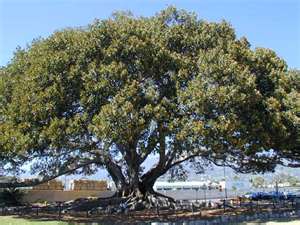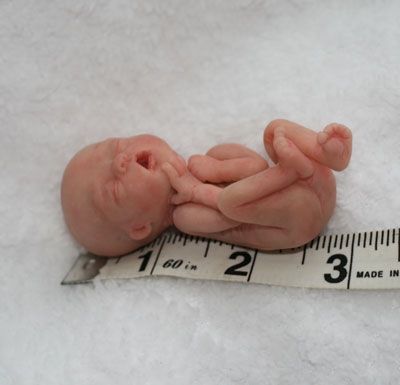3rd Sunday of Lent -- Awe and Wonder before God
"I am who am"
Ex 3: 1-8, 13-15
1 Cor 10: 1-6, 10-12
Lk 13: 1-9
The ever popular movie, The Wizard of Oz is a story essentially about a quest for identity. The virtues of courage (the lion), compassion (the heart of the tin man), and intelligence (a brain for the scarecrow), and Dorothy’s desire for “home,” all engage us in our own self-awareness.
Ultimately, they travel to the mythical kingdom of Oz in search for these virtues from the wizard who they assume can grant them these traits. Once they enter his throne room, they encounter a blazing ball of fire and an over powering voice which states “Come no closer. I am the great and powerful Wizard of Oz!”
Frightened, the three strange companions of Dorothy scatter in fear but Dorothy herself boldly approaches the smoke and fire of the Wizard and dares him to grant their request. She displays courage, wisdom, and compassion for her friends and meets the wizard on his own terms. Once she returns home, was it all a dream she wonders, she recognizes that the three companions were symbolic of character traits she could find among her own friends and family. In the end we discover that the wizard himself is all show. His awesome display of power, however, was convincing.
By contrast, this Sunday we are confronted with a less frightening display of power and a real presence that is anything but an illusion. There are no balls of fire or grand displays of command but a mysterious burning bush. The book of Exodus relates the familiar story of Moses and the bush which burns but is not consumed. Unlike the smoke and mirrors of the “Great and powerful Wizard of Oz” this fire is a living presence.
Moses, it seems, is not in search of any particular quest but rather, “. . . tending the flock of his father-in-law Jethro . . . leading the flock across the desert, he came to Horeb . . . (Ex 31-2). While tending to his sheep, he spots a strange burning bush and forever his life changes. Moses approaches with feet unshod for he hears the voice from the bush say: “Remove the sandals from your feet for the place where you stand is holy ground. I am the God of your fathers . . .” (Ex 3) He confronts the living God; a God who invites us into a relationship with him; a God of mercy, and love.
This season of Lent can be for us a new recognition of God’s presence in our lives. While his presence is a constant, ours often is not. We’d sometime rather search for that “yellow brick road” rather than stay on task. Looking for God in all the wrong places or simply not at all rather than encountering him right at home.
God hides in the sign of the fire but the fire is not God, nor is the bush, but through his own creation – with a sign of consuming energy – God reveals himself to Moses and through Moses to . . . my people . . . (Ex 3) God is not satisfied with remaining distant and unapproachable. He desires a relationship with us.
The great theologian of the Church, St. Thomas Aquinas, wrote a great deal on the nature of God. That God is existence itself. That God’s existence is what sustains every living being, creation itself. Because God has created all to be good, each being has its purpose and contributes to the good of creation. Humankind, of course, is of the greatest good and contributes to moral goodness in the world. Love, like God himself, is best when it is a self-giving love that mirrors its creator.
To encounter the living God, as we do in Word and Sacrament every time we gather at the Mass, may not be a burning bush or a ball of fire who tries to overwhelm us with illusory power but it is the silent yet life sustaining presence of the God who lifted the veil off his face for us in the person of Christ Jesus. He seeks our response; our loyalty to him, as did Jesus so often with his own disciples.
Yet, has the Mass and our faith in general become all about the “me” or all about this sacred encounter as a conscious response to God’s invitation of love? It is a balance between a gathering of family and friends for that sake alone and a gathering on sacred ground before the living and life-sustaining God who comes to us under the signs of word, bread and wine. Yet, have we lost a sense of the sacred and lost a sense of awe and wonder these days?
We have a diminshed respect for human life and have set up an entire class of the unborn human being which we have decided has no rights or legal protection. This has rippled out to the prevailing culture like water when a rock is thrown in. The single-minded effort to redefine marriage, the family, and the role of a parent has reduced the sacred to a level of distorted politics and bigotry. This Lent is a call to reclaim our stand before God, as Moses, with bare feet, on holy ground, with humility and wonder - to once again make room for God and his voice in my life.
Those who encounter us as believers who sometimes walk a different road should feel welcome to journey with us. Is your faith contagious to others? As we become living signs of Christ to others they should feel in us a faith reflected. God longs for relationship with him. How can I seek to deepen that truth in my life?
A Prayer for Communion
Son of the Living God,
Lord Jesus Christ,
Whose death
Willed by the Father,
Empowered by the Holy Spirit,
Restored the life of the world,
Deliver me from all my iniquities and from every evil
Through this most sacred Body and blood of yours.
Keep me always close to your commandments
And never allow me be separated from you.
(9th century)
Fr. Tim




